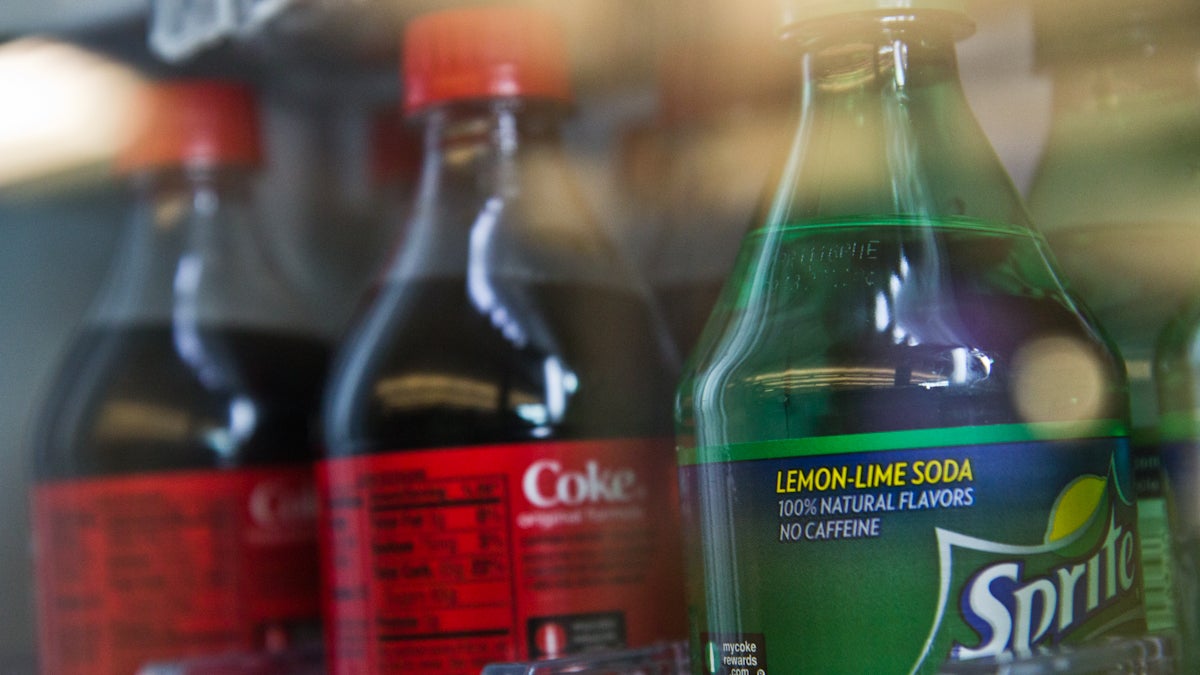A soda tax for Philadelphia? Public health researchers assess potential benefits
Listen
Because few places have imposed soda taxes
Mayor Jim Kenney intends to call for a 3-cents-per-ounce tax on sugary beverages later this week as a way of raising funds for several initiatives, including citywide pre-K.
But the “soda tax” is more than a potential money maker; proponents often tout the public health benefits.
People have strong opinions on this matter — and about taxes in general.
That includes the scientists, said Marlene Schwartz, director of the Rudd Center for Food Policy and Obesity at the University of Connecticut. But in this case, she said, few places have soda taxes, making it hard to assess the real world evidence of the health impacts.
“You end up hearing people guessing in one direction or the other,” she said.
Many researchers, including Dr. Jason Block with Harvard’s obesity prevention program, do see the potential benefit of a tax in reducing the consumption of sugary drinks and improving health.
“Especially for those who consume high levels of sugar-sweetened beverages, which includes young adults, where consumption is upwards of 13 percent of all calories consumed in course of a day,” he said.
Block points to evidence in the U.K. and Mexico, where soda taxes have led to a decline in soda consumption. In Mexico, early results have found a 6 percent drop in sugary beverage sales. Beyond that, several simulation studies have projected similar decreases and, in turn, major health improvements.
In the U.S., though, Berkeley, California, is the only city that has implemented a notable soda tax. The 1-cent-per-ounce tax on distributors took effect in May.
Experts including John Cawley, an economist at Cornell University, are wary. He has studied Berkeley’s tax and found it hasn’t been fully passed on from distributors to consumers. (Another study measured this differently and has a much different take.)
Cawley said he thinks that at the city level, as opposed to a state or national approach, a soda tax might be too narrow to have the kind of impact health proponents seek.
“Because you can switch to other energy-dense foods that aren’t taxed, or you can drive a few miles across the city border to buy products in another jurisdiction,” he said.
Either way, public health experts do appear to agree on this: cutting consumption is a good thing because the sugary drinks contribute to all sorts of health problems.
Cawley and Schwartz, with the Rudd Center, said the issue at hand is how to best design a policy that can effectively change habits.
“You get into the questions of how should this be done — how much is education, how much is getting them [sugary drinks] out of schools, how much is passing laws saying they shouldn’t be served in child care, how much do you focus on taxes?” said Schwartz. “And there, people have different opinions as to which strategy they think will work best.”
At least for Schwartz, though, anything that can communicate to the public that soda is not a healthy option, including implementation of a tax, is a step in the right direction.
WHYY is your source for fact-based, in-depth journalism and information. As a nonprofit organization, we rely on financial support from readers like you. Please give today.

